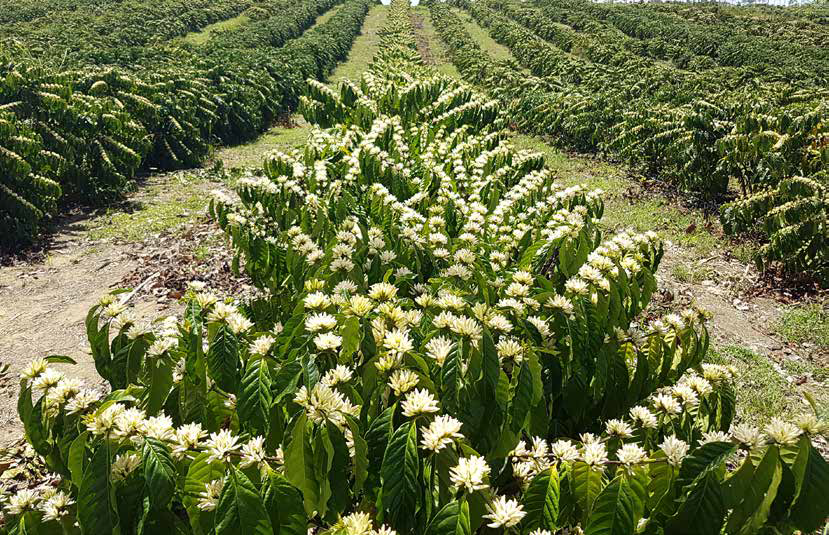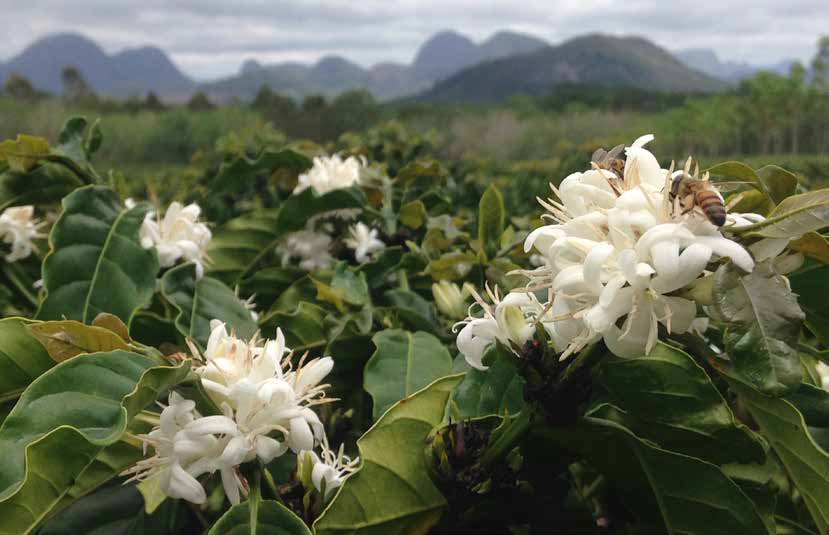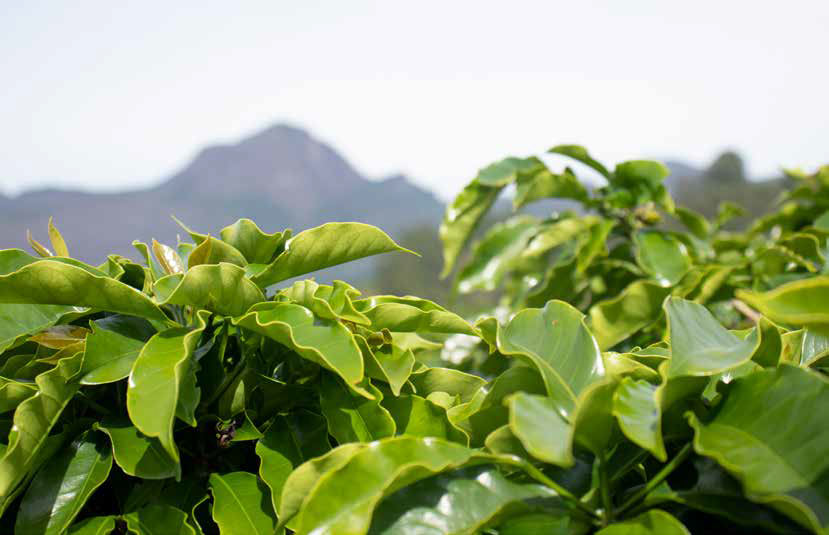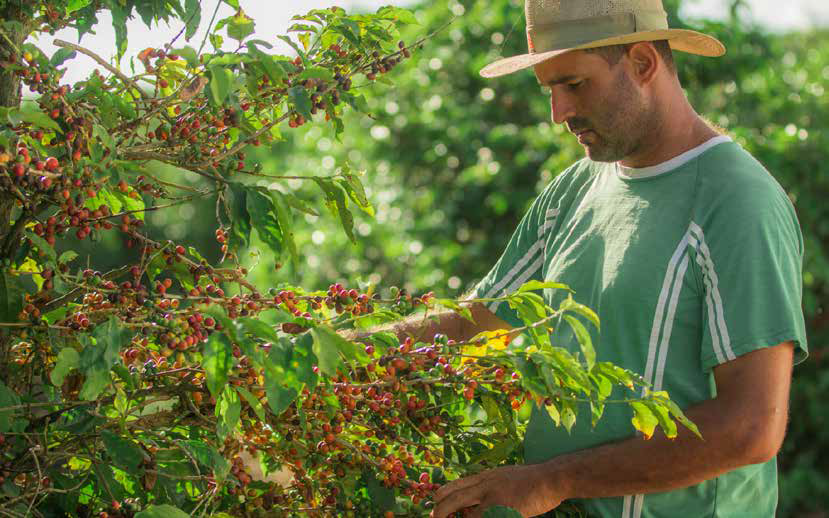Cecafé has been involved in discussions to avoid aggravating the disharmony between the MRLs in force in Brazil and the European bloc.
In November, the European Commission and the European Parliament took important decisions on the use of crop protection products that indirectly affect the European Union’s policy on Maximum Residue Limits (MRLs) and, consequently, coffee trade flows.
Within the European Commission, after years of discussion, EU Regulation 2023/2660 published on November 28, officially renewing the authorization for the use of glyphosate in the EU for a period of ten years, until December 15, 2033.
Cecafé has been directly involved in the discussions on glyphosate in the European Union in recent years, in partnership with the crop protection industry, Brazilian agricultural attachés in European countries and importing partners represented by the European Coffee Federation (ECF).
The Council has always defended scientific criteria to maintain confidence in the predictability and transparency of the European regulatory system. A non-renewal of glyphosate in the EU, disregarding the scientific evidence on its safety, would result in a further reduction of MRLs for coffee, leading to a period of uncertainty and disruption of trade flows.
In this sense, the European Commission’s decision was in line with Cecafé’s request, as it respected the results of the most recent scientific assessments on glyphosate carried out by the European Chemicals Agency (ECHA) and the European Food Safety Authority (EFSA), whose respective conclusions were: (i) the molecule cannot be classified as carcinogenic, mutagenic or toxic for reproduction; and (ii) there are no critical areas of concern regarding the risk of glyphosate to humans, animals or the environment.
With regard to the votes on the renewal of the authorization for the use of glyphosate in the European Union on October 13, 2023 and November 16, 2023, Cecafé promoted several activities, including lobbying the European Commission and the governments of member states, such as France (one of the most sensitive countries at the beginning of the discussions on the renewal of glyphosate, but which later changed its position and abstained).
Cecafé also participated in a Brazilian mission made possible by the Bayer Innovation Club, together with CNA, Abrapa, Aprosoja and Abramilho, to other relevant European Union countries to influence the vote on the renewal of the use of glyphosate: Germany, the Netherlands, Belgium, and Italy. With the fundamental support of the Brazilian embassies in these countries, the mission contacted the direct importers of the affected commodities and asked for their support in lobbying their governments to reverse positions that ignored scientific criteria. Italy’s positive vote and the change in the votes of Germany, the Netherlands and Belgium, which abstained instead of voting against glyphosate’s renewal, were very positive and paved the way for the European Commission’s decision on November 16 to approve glyphosate for another 10 years.
Having overcome this challenge, the focus is now on the review process of glyphosate residue limits in coffee within EFSA, which is expected to start in the coming months. It is expected that the glyphosate MRL for coffee in the EU will remain at 0.1 mg/kg for 2024.
The approval of the extension of the use of glyphosate in the European Union for 10 years is very positive for the coffee trade, as it strengthens the possibilities for the approval of an import tolerance for glyphosate residues in coffee in a parallel process to be initiated with EFSA, probably in 2024 (depending on the results of the field trials being developed in Brazil and supported by coffee importing partners). The import tolerance is the residue limit set for an active ingredient in an agricultural product in the importing country, based on the agricultural reality of the exporting country.
Another paramount decision taken on 22 November was the rejection by the European Parliament of the proposed Regulation on the Sustainable Use of Pesticides (SUP), which would have set binding targets for EU Member States to reduce their use of pesticides by 50% by 2030.
The European Parliament’s decision has brought more certainty to coffee trade flows, as if the SUP proposal were to succeed, one of its consequences would be an increase in the movement to reduce MRLs, impacting exports of agricultural products to the EU, including coffee.
Even with the recent favorable rulings, the exporting sector continues to pay close attention to the MRL policies of destination countries, as there is still a great deal of disharmony between the standards in force in Brazil and those established by importing countries.
To deal with this scenario, Cecafé’s Social Responsibility and Sustainability Pillar continuously carries out various actions, including international regulatory monitoring and the timely communication of changes in MRLs in the main destination markets for Brazilian coffee to member exporters, with the aim of mitigating impacts such as increased costs for the export chain.
In addition, the Residue Monitoring Program assesses the level of compliance of the Brazilian coffee harvested each season with the different MRL policies of the main destination markets. The results allow risk assessment and guide Cecafé’s actions of institutional engagement and promotion of good agricultural practices through the Informed Farmer Program.
Transformed into a distance learning platform, the Informed Farmer Program is one of the tools of the Collective Action Initiative “Responsible Use of Agrochemicals”, through which a partnership has been established between Cecafé and the Global Coffee Platform (GCP) to train thousands of farmers in good agricultural practices. The online courses available address the importance of farmers adopting integrated crop protection management as a strategy to increase the sector’s resilience to external regulatory shocks that could limit access to key markets.
The coffee exporting industry is aware of the global challenges and is taking proactive steps to increasingly integrate ESG practices into the supply chain. Combining quality production, environmental protection, science, innovation and care for people, Brazil remains a leader in the global coffee trade.
Marcos Matos
CECAFÉ CEO
Silvia Pizzol
CECAFÉ Sustainability Manager






Leave A Comment